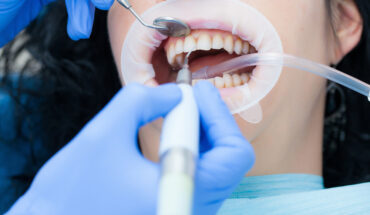
What is peri-implantitis? It is a destructive inflammatory process, which affects the hard and soft tissues surrounding dental implants. Usually, the soft tissues get inflamed, while hard tissue (alveolar bone) surrounding the implant for retention purposes becomes lost over time.
The bone loss linked to peri-implantitis differentiates the tooth condition from peri-mucositis, which is basically a reversible reaction involving soft tissues. However, regardless of dental care improvements, millions of people still suffer tooth loss, mostly because of injury, tooth decay, or periodontal disease.
For years, the only options for treatment available for individuals with missing teeth used to be dentures and bridges. Though today, computer-guided dental implant surgery is readily available for patients.
Late and Early Dental Implant Failure
A dental implant has a high success rate, though some individuals experience failure. It is approximated that around 7% of dental implants fail, either after several months, years or even shortly once the procedure is complete.
Failures happen for different reasons. An implant failure is divided into late and early failures. Long-term or late failure describe a situation where implants have integrated solidly, though, after a few years or months, there will be a bone loss.
On the other hand, early failure describes where implants are placed, but they fail to integrate. Instead, they become embedded solidly into the jaw bone.
The success of Dental Implants
Dental implants are among the important treatments offering many patients an aesthetic and effective way to replace their missing teeth. Plus, considering the fact that they may restore the normal appearance and function of natural teeth, the major reason for their popularity is the high success rate.
As a matter of fact, a dental implant has a success rate of approximately 93%. However, with a high rate, some factors may affect this success. Among the factors affecting this success is the incapacity to practice proper oral hygiene after the treatment.
Simply put, the likelihood of implants working depends on the health of your mouth. For example, if you have limits that interfere with cleaning your teeth thoroughly, you might not be an ideal candidate for a dental implant.
In addition, without sufficient healthy bone, a surgeon will not surgically place an implant into a patient’s jaw. Successful procedures also depend on sufficient bone to support a dental implant.
A bone loss might as well occur with osteoporosis, resulting in bone density decrease. Apart from the insufficient jaw bone and poor dental maintenance, other factors include:
- Healthy gums
- Smoking
- Diet
Why Implants Are a Great Option
Advanced and modern dental implants are specifically designed to offer replacements for patient’s missing teeth. Their design consists of three main elements that, when a professional dentist provides treatment, might result in successful results. These elements include a restoration, a titanium post, and an abutment.
Mostly, dental implants become successful because the patient’s body responds to the titanium post. As a result, a bond establishes between that post and living jaw bone in a process referred to as osseointegration.
As a result of this process, the jawbone accepts the post as the replacement and not as foreign material. Lastly, the restoration and abutment attached to the post will develop an immediate head start to provide a more permanents solution.
A Summary!
While dental implants are rare, they might occur even when surgeons are extremely cautious and use the most sophisticated technologies.
Though those failures don’t just happen because of body rejection like it’s seen with organ transplants. Rather, they happen because of the surgery process, post-operation care, or general oral health.




